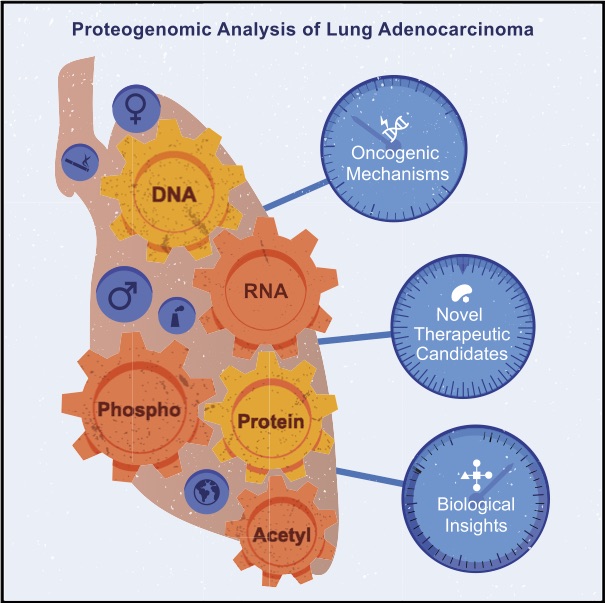Jurisdiction:
United States
Organ System:
Lung
Funding Organization:
- National Cancer Institute, USA
Research Organizations:
- Broad Institute of MIT and Harvard, USA
- Washington University in St. Louis, USA
- University of Michigan, USA
- Icahn School of Medicine at Mount Sinai, USA
- New York University School of Medicine, USA
- Baylor College of Medicine, USA
- Brigham Young University, USA
- Johns Hopkins University, USA
- National Cancer Institute, USA
Principal Investigators
:- Steven A. Carr
- D.R. Mani
- Li Ding
Publication:
External Links:
The National Cancer Institute’s Clinical Proteomic Tumor Analysis Consortium (CPTAC) is a national effort to accelerate the understanding of the molecular basis of cancer through the application of large-scale proteome and genome analysis, or proteogenomics. Through a coordinated effort by CPTAC-affiliated Proteome Characterization Centers, Proteogenomic Translational Research Centers, and Proteogenomic Data Analysis Centers, CPTAC aims to comprehensively characterize human cancers.
To explore the biology of lung adenocarcinoma (LUAD) and identify new therapeutic opportunities, we performed comprehensive proteogenomic characterization of 110 tumors and 101matched normal adjacent tissues (NATs) incorporating genomics, epigenomics, deep-scale proteomics, phosphoproteomics, and acetylproteomics. Multi-omics clustering revealed four subgroups defined by key driver mutations, country, and gender. Proteomic and phosphoproteomic data illuminated biology downstream of copy number aberrations, somatic mutations, and fusions and identified therapeutic vulnerabilities associated with driver events involving KRAS, EGFR, and ALK. Immune subtyping revealed a complex landscape, reinforced the association of STK11 with immune-cold behavior, and underscored a potential immunosuppressive role of neutrophil degranulation. Smoking-associated LUADs showed correlation with other environmental exposure signatures and a field effect in NATs. Matched NATs allowed identification of differentially expressed proteins with potential diagnostic and therapeutic utility. This proteogenomics dataset represents a unique public resource for researchers and clinicians seeking to better understand and treat lung adenocarcinomas.

